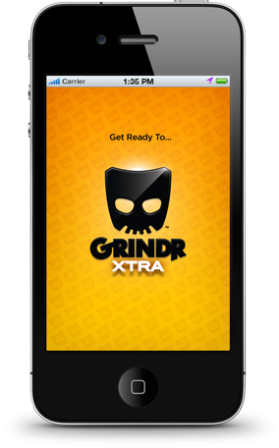In the world of gay online dating, your race affects your romantic and sexual connections, whether your potential partners realize it or not.

Systems of oppression based on race sometimes pressure queer men of color to lie about or hide their racial/ethnic identity in online dating spaces like Grindr in order to get positive romantic and sexual attention.
I’ve met a few people who have experienced problems with online dating. One queer man of color I know is half-Indian and half-Italian with a common Indian name. But in online dating profiles he uses a common English first name and an Italian surname. He waits until he meets someone to reveal his real name and racial/ethnic identity because men sometimes stop talking to him when they find out he’s partly Indian.
Another person I know is Black but has self-identified as mixed-race on Grindr because he gets little attention when he identifies himself as Black. And the attention he does receive for identifying as Black isn’t favorable – it’s frequently unsolicited and racialized. For instance, one white man asked him, “Do you wanna make a white man your slave?” Another white man refused to believe he was Black, citing his “Chinese-looking eyes.”
These are just a few stories that illustrate the effects of racism within online dating communities comprising mostly gay men. Queer men of color have fewer options in online dating than queer white men.
Data suggests these stories are not uncommon or unique. Based on data published by OkTrends, a blog produced by OkCupid, white gay men respond more often to OkCupid messages from other white men than from men of color. They respond to messages from other white men 44% of the time but respond only 37.3% of the time to men of color.
White gay men also respond less frequently to messages in general than gay men of color. On OkCupid white gay men respond to messages from all races at an average rate of 41.4%, but gay men of color respond to messages from all races at an average rate of 49.3%.
Ironically, even though white gay men respond to messages in general less frequently than gay men of color they fail to attract the highest rate of responses to the messages they send. Middle Eastern gay men, on average, will receive about 48 responses for every 100 messages they send, while white gay men will receive an average of 45. By contrast, Black gay men will receive about 36.
Response rates vary by race less among lesbian women on OkCupid than gay men. White lesbian women respond to OkCupid messages from other white women 49% of the time but respond to messages from women of color 47.6% of the time (excluding response rate to Indian women due to small sample). White lesbian women respond to women of color 2.4% less often than to white women, but white gay men respond to men of color 6.7% less often than to white men.
These data illustrate that one’s race/ethnicity affects one’s romantic and sexual value in queer communities. And racism especially harms gay men of color.
OkCupid’s data sheds light on casual racism in queer online dating communities, but overt racism is also prevalent. Blogs like “Douchebags of Grindr,” though insensitively titled, point out overtly racist headlines gay men post on their Grindr profiles such as “no blacks” or “white only.” Often, white men attempt to minimize the social harm of their overt racism by claiming their comments are merely “preferences.” But these so-called preferences cause significant harm. They can cause some queer men of color to feel undesirable, which in turn can pressure some queer men of color to lie about their racial/ethnic identity in order to attract attention.
It is troubling to see racial hierarchies reified in online queer dating spaces because queer people should know better. Queerness does not give whites a pass to be openly racist. Most queer whites know the pain of social marginalization, yet they marginalize queer people of color in online dating communities. I want to live in a pluralistic world, where whiteness holds the same value as all other amalgams of race, ethnicity, and culture.
[NOTE: It is unclear whether OkTrends included bisexual men when calculating response rates. OkTrends also did not report data on transgender individuals.]
By: Rick Mula, Holley Law Fellow
